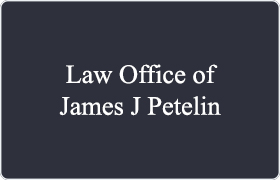Sacramento County, CA DUI-DWI Lawyers
Sponsored Law Firm
-
 x
x

Click For More Info:
-
Law Offices of James J. Petelin
1550 Humboldt Road, Suite 4 Chico, CA 95928» view mapCriminal Defense Effective, Client-Focused Representation
Call today to discuss your case.800-749-8150
Jelena Tiemann
✓ VERIFIEDJelena Tiemann prides herself on being warm and easy to talk to. She strongly believes in getting to know her clients and all the issues they may be f... (more)
Matthew Nicholas Becker
✓ VERIFIEDSome legal matters deserve to be looked at from the professional perspective of a lawyer. The Becker Law Practice is familiar with laws that impact th... (more)
Richard Thomas Dudek
✓ VERIFIEDRichard Dudek knows the Sacramento courts, procedures and prosecutors. Our highly skilled defense team includes licensed private investigators who use... (more)
Faith Hashemi
✓ VERIFIEDFaith's experience, negotiation skills, and passion offer unparalleled service for her clients' cases. Connect with her for a full-service legal exper... (more)
FREE CONSULTATION
CONTACTStacie Power
FREE CONSULTATION
CONTACTJoseph Patrick Hougnon
FREE CONSULTATION
CONTACTFREE CONSULTATION
CONTACT AboutLaw Offices of James J. Petelin
AboutLaw Offices of James J. Petelin Practice AreasSpecializations
Practice AreasSpecializations




